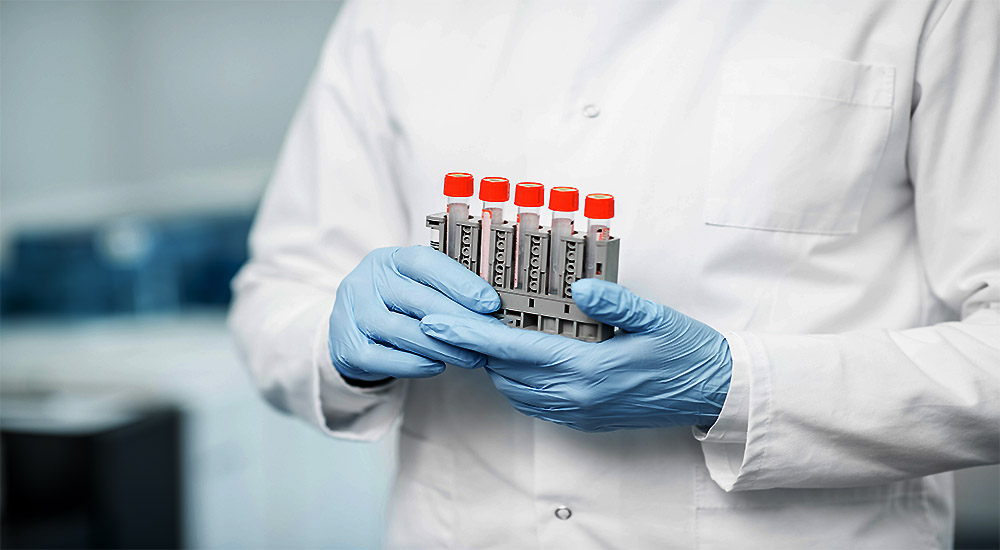Gluten Intolerance Lab Test Sensitivity

Why Don’t Doctors Look for Celiac Disease More Often?
One of the things that I complain about is that our gastroenterologists and primary care physicians are not “up to speed” on looking for and quickly diagnosing celiac disease in their patients. I don’t think it’s yet fair to chastise them about not diagnosing gluten sensitivity, as it has only recently been corroborated as a real condition by mainstream celiac researchers.
Is Research Misleading?
Perhaps to some degree, it’s not our doctors’ fault. If they read the research article I’m about to quote, one could understand how they could be misleading.
The Journal for the American Medical Association printed a clinical review entitled: “Diagnostic Testing for Celiac Disease Among Patients With Abdominal Symptoms”. The title sounds promising but I must take umbrage with some misleading conclusions. The article is eight pages long and therefore not a “quick read”.
The reason I bring up the length is that a “habit” for many clinicians when they’re interested in a subject is to have research articles sent to them that they then scan the overall objective and conclusion to get a flavor for what the researchers found.
The Conclusion of a Research Paper Should Accurately Sum up the Findings
Keeping in mind that the conclusion is often the “go-to” area of the article, let’s look at the conclusion from this study verbatim.
“Among adult patients presenting with abdominal symptoms in primary care…, IgA tTG [a lab test for celiac disease] and IgA EMA [another lab test for celiac disease] have high sensitivity and specificity for diagnosing celiac disease.” [Sensitivity and specificity refer to how accurate a lab test is in diagnosing a disease without a high amount of false positives or false negatives – high sensitivity and specificity is very desirable.]
If I was a primary physician, or a patient looking for some answers, I would order up a tTG and EMA test as I’m being told by this study that they have a high sensitivity and specificity. It sounds as if that’s all I need to do in order to accurately diagnose celiac disease in my patients. Doesn’t it?
What Happens When the Conclusion & Body of the Paper Don’t Align?
However, within the body of the article, it is stated that positive tTG and EMA tests correlate with how damaged the small intestine of the celiac patient is. And those will less severe damage actually were found to have negative results.
In other words, they had celiac disease, but their blood test was negative. Why is this important? Because our whole aim is to diagnose those suffering from celiac disease early BEFORE severe damage has occurred to the small intestine and the patient’s health is dramatically compromised.
Current Celiac Lab Tests are Known to Be Insensitive to an Early Diagnosis
There is much research that already states this problem with those particular blood tests. Those of us who follow this closely KNOW that these tests are not terribly sensitive. We know that severe damage to the small intestine needs to occur before these tests show positive, in the main.
Why am I upset with this research? Because their conclusion is terribly misleading. Doctors that don’t take the time to read the entire (long) paper, and I promise you that will be many, will come away with false information and their patients will suffer as a result. It is no wonder doctors are confused!
In my opinion, a test for celiac disease cannot be termed “highly sensitive and specific” if it misses when partial damage to the small intestine has occurred. The risks associated with celiac are too severe to only use tests that are accurate when the small intestine is all but destroyed. They also state: “The prevalence of the celiac disease in primary care patients presenting with gastrointestinal symptoms is 2% to 4%.
However, gastrointestinal symptoms in primary care are common, and screening all patients for celiac disease is neither necessary nor efficient.” Wow, unnecessary for whom? Inefficient for whom?
If the writer was among the estimated 10 – 30% of patients suffering from gluten sensitivity, many of whom are misdiagnosed with everything from IBS to gastritis to “nervous stomach”, and removing gluten from the diet had eliminated their gastric distress, I don’t think he or she would be using the words “unnecessary” or “inefficient”.
There is a Free Test
If cost is the primary concern, what about trying a free diagnostic test? Eliminate gluten from the patient’s diet for 30 days and see how they feel. But then the argument is that once they’re off gluten you can’t run a celiac panel. Well, you can’t have it both ways: You can’t complain about the cost and necessity of testing (which isn’t very accurate by their own admission) on one hand but then not embrace a free solution on the other hand.
Would the authors simply have patients wait and wait for the standard 10 years that it takes someone to get diagnosed with celiac disease in this country just so that they knew for sure?
Forget the fact that waiting a decade likely condemns them to a lifetime of ill-health as a result of secondary disease processes that developed while waiting for a confirmed diagnosis.
Such things as autoimmune diseases, infertility, depression, anxiety, colon cancer, etc, could likely be prevented by an early diagnosis of either celiac or gluten sensitivity.
The article concludes with this statement: “Further research should investigate the performance of a diagnostic algorithm, using sequential [blood] testing in patients with chronic or refractory [meaning not responding to treatment] abdominal symptoms in primary care.”
An Algorithm for the Diagnosis of Celiac Disease and Gluten Sensitivity
I agree that a diagnostic algorithm is a good idea and would like to volunteer a preliminary one:
1. Screen suspected patients by performing the following tests: tTG, deamidated gliadin, IgA, and IgG gliadin antibodies. This will be a good initial screen for celiac disease and gluten sensitivity both.
2. If all celiac tests are negative and you didn’t already test for gluten sensitivity, do so now.
3. If all lab tests are negative, recommend a 30-day gluten-free trial to confirm or rule out early celiac or gluten sensitivity. Ensure the patient understands the need for 100% compliance.
4. At the end of 30 days if the patient hasn’t had the realization that they are gluten intolerant by virtue of how much better they are feeling then conduct a challenge by having the patient consume two good-sized portions of gluten-containing food. Have the patient observe for symptoms for the following 3 days. If this test is negative the patient can resume eating gluten.
5. If any of the above is positive, the patient should begin a gluten-free lifestyle and continue to be evaluated for any secondary effects of gluten that should be addressed in order to restore optimal health.
I know that a lot of effort was put into this study and I am in no way trying to lessen that. But I do feel that the stated conclusion was misleading and the focus on celiac disease only will, unfortunately, continue to perpetuate the very misunderstanding that is causing so many people to suffer needlessly – undiagnosed celiac disease and gluten sensitivity.
I hope you find this helpful. Please let me know if you have any questions or how I can be of further assistance. We see patients from across the country as well as internationally at our Destination Clinic. We are here to help you, your friends, and your family.
Do you need help with your health?
We have the diagnostic and testing tools, the clinical experience, and a different medical approach to discovering the root cause of why you have the symptoms that are bothering you. As long as you are ready to make some dietary and lifestyle changes, we can help you. We will "hold your hand" through the changes, step by step, to make each step an easy one. We are located in Clearwater, FL, at 1000 S Ft Harrison, at the corner of Ft. Harrison Ave. and Magnolia St. There is plenty of parking space directly accessible from Ft Harrison. If it is not convenient for you to come to Root Cause Medical Clinic, we offer telehealth/telemedicine consultations to residents of certain states. Call us for details.
Contact us for a Consultation – Call 727-335-0400

Dr. Vikki Petersen DC. CCN
Founder of Root Cause Medical Clinic
Certified Functional Medicine Practitioner
Dr Vikki Petersen is a public speaker, author of two books, several eBooks and creates cutting edge content for her YouTube community. Dr Vikki is committed to bringing Root Cause Medicine and its unique approach to restoring health naturally to the world.
Ask a Doctor
Have a health concern you'd like to speak with a doctor about? Or just want clarity on a subject? Ask Us!


